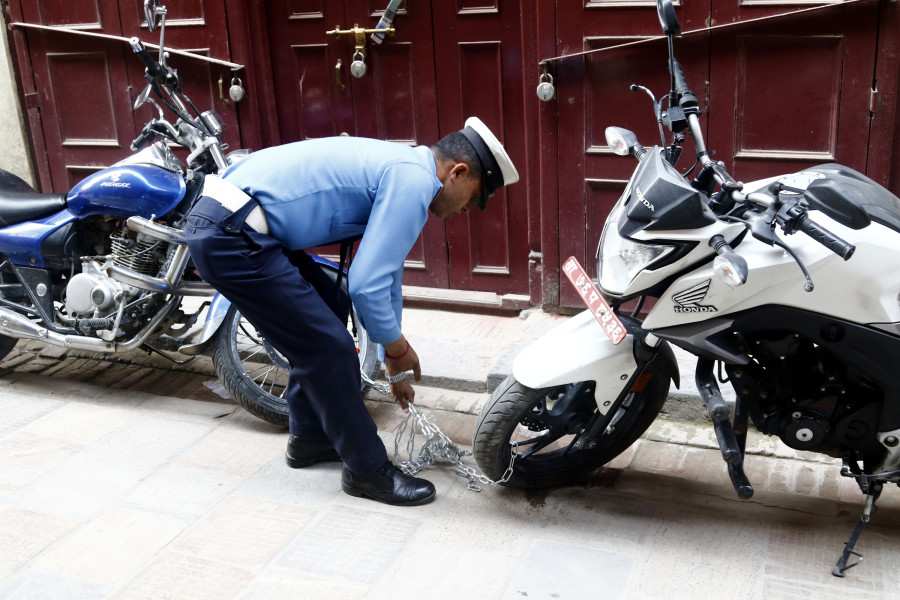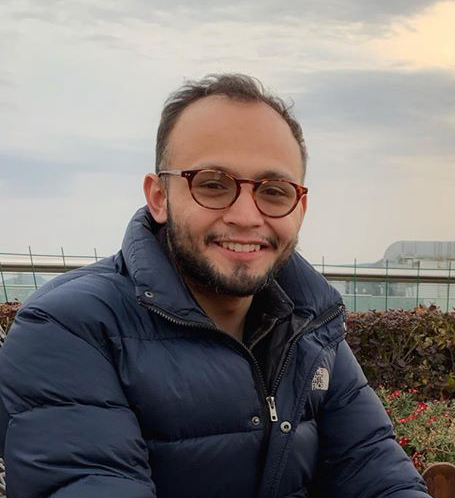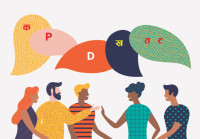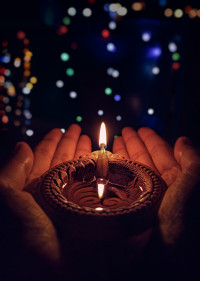As it is
Civil disobedience with a conscience
As common citizens of a semi-dysfunctional state, the least we can do is use our conscience to act towards a change we collectively envision.
Asmod Karki
July 16, Tuesday. Bouddha again. I had a couple hours to pass between lunch and a four o’clock symposium held near Jorpati. At around 1:30, I habitually parked my scooter on an alley left to the main south entrance, made half a kora around the stupa and headed to Shambala, a quiet café located to the north of the Bouddha stupa. Over a cup of latte, I started turning the pages of The Ministry of Utmost Happiness, by Arundhati Roy. For the next couple hours, I was immersed in the world of Anjum—one of the main protagonists in the novels. Through Anjum and countless other characters, Roy spoke of urban poverty, class, religion, politics, life and everything in between.
At around 3:35, I paid the bill and walked towards my scooter. Half a kora again. As I was just about to retrieve my helmet from my scooter’s compartment box, I noticed a long metal chain. The gap between the seat and the seat-handle was just wide enough for the chain to go through. The iron chain was around 12-15 feet long with a big padlock at one end. The ‘No-Parking’ sign on the almost-crumbling brick wall in front was faint, but still visible.
A young fellow had been walking back and forth carrying a helmet on one hand, and it did not take long for fellow violators to bond. We both wondered how to get the chain off our scooters. A local shopkeeper, perhaps in his 50s, suggested we find a traffic police to open the padlock. “He’ll give us a ticket today.” More than getting fined, I was worried about losing the entire day tomorrow trying to retrieve my license from the police station.
The symposium would soon start, and as urgent as it was to get the padlock off my scooter, I noticed there were hesitancies in me. It was not just the inconvenience of visiting a police station that was engendering such emotions. There was something more.
I felt I was treated unfairly—in the sense that the treatment I received was not the same compared to other violators. I noticed that only a few two-wheelers in the alley were chained. The rest, tens of them, were left without a concern. My scooter was one of the few unlucky ones that day. Should the law be selectively applied? Should punishment be based on luck?
The second reason pertains to the impact of paying the fine. I did not know how the money would be used. I was not very certain the fine amount would be put to effective use to either improve my road experience or the quality of public service delivered in the transportation offices.
The lack of public parking spots added fuel to my contemplations on the sorry state of Kathmandu. I and many others had parked their vehicles on the alley for the dearth of public parking spaces in the area. To the best of my knowledge, the immediate vicinity of Bouddha stupa, like many other public spaces, does not have a designated parking spot. Hanging or painting a ‘No-Parking’ sign over an electricity pole or a wall is easy, but then what? Where should I park? Is it not the responsibility of the authorities to provide parking grounds? Had I deliberately not parked my scooter in one of such designated areas, I would have been okay with paying the fine. But in lack of such spaces where was I to park my scooter? Along the busy Bouddha Sadak? In front of the bustling Bouddha Gate? If so, what is the use of road-tax I pay every year?
Somewhat convinced that I should not pay the fine, I started to consider a way out. While the symposium would have been interesting to attend for my intellectual curiosity, I felt this moment provided an opportunity to act for something I believed in. I believed that I should not pay the fine—as a symbolic gesture of public disobedience against the state functioning. I was in no position to pick a fight with the traffic policemen, who at the moment represented Nepali state. Neither did I want to test the temper of a policeman. Some battles are won not by jumping into action, but with patience. Waiting would be my strategy, I decided. In my minuscule battle against the state, I decided to stay back and wait to see if the lock would be removed at some point in the evening when the traffic police returned to their stations.
The universe had its own plans as I made a resolution to evade the fine. I made a few rounds of kora and sat on the steps in front of a store that was now closed. By happenstance there was a monk—clad in a dark red and yellow robe—sitting next to me. “There are a lot of mosquitoes,” he started a conversation. What could have ended with a simple yes or no response evolved into an hour-long rumination on Buddhist mythology, politics, and life. He explained how a demon devours the full moon once a year as per Buddhist mythology. I listened to his stories of Darjeeling and Kashmir over two sweet toffees he kindly offered. The clock struck 8:50-ish and I had to ask for a leave. I made half a round of kora again.
At around 9, the chain had disappeared, and I was free to ride my scooter without a fine. I am not sure what I would have done if my scooter was dragged to a police station or if it was chained for the entire night. Luckily, it wasn’t. The chain was gone as I had calculated.
This may be taken as a humble-brag or as a guide to evade traffic rules in Nepal. I am not proud of evading fines. I cannot condone those who evade state mechanisms to make individual gains. I am also not sure if the logic of my argument here could be applied to circumstances beyond what I have described. As much as I wish to be a law-abiding citizen, I also feel that it is the demand of time to act on moral, not just on legal, grounds. What is legal does not mean it is morally correct or just.
As a citizen, many of us do not have the authority or the resources that many gatekeepers of the state have. We do not command a police force or an army or a bureaucracy neither should that be our ultimate goal. We have a tool that could be deployed without the need of massive amount of state resources: our conscience. I believe that as common citizens of a semi-dysfunctional state, the least we could do is use our conscience to act towards a change we collectively envision.
I realise changes will not happen overnight. They will take time. I am willing to be patient to see the changes unfold and change my mind along the way. Until then, I would be very content following the voice of my conscience with contentment rather than fearfully obey the laws made for the powerless.
***
What do you think?
Dear reader, we’d like to hear from you. We regularly publish letters to the editor on contemporary issues or direct responses to something the Post has recently published. Please send your letters to [email protected] with "Letter to the Editor" in the subject line. Please include your name, location, and a contact address so one of our editors can reach out to you.




 23.2°C Kathmandu
23.2°C Kathmandu










